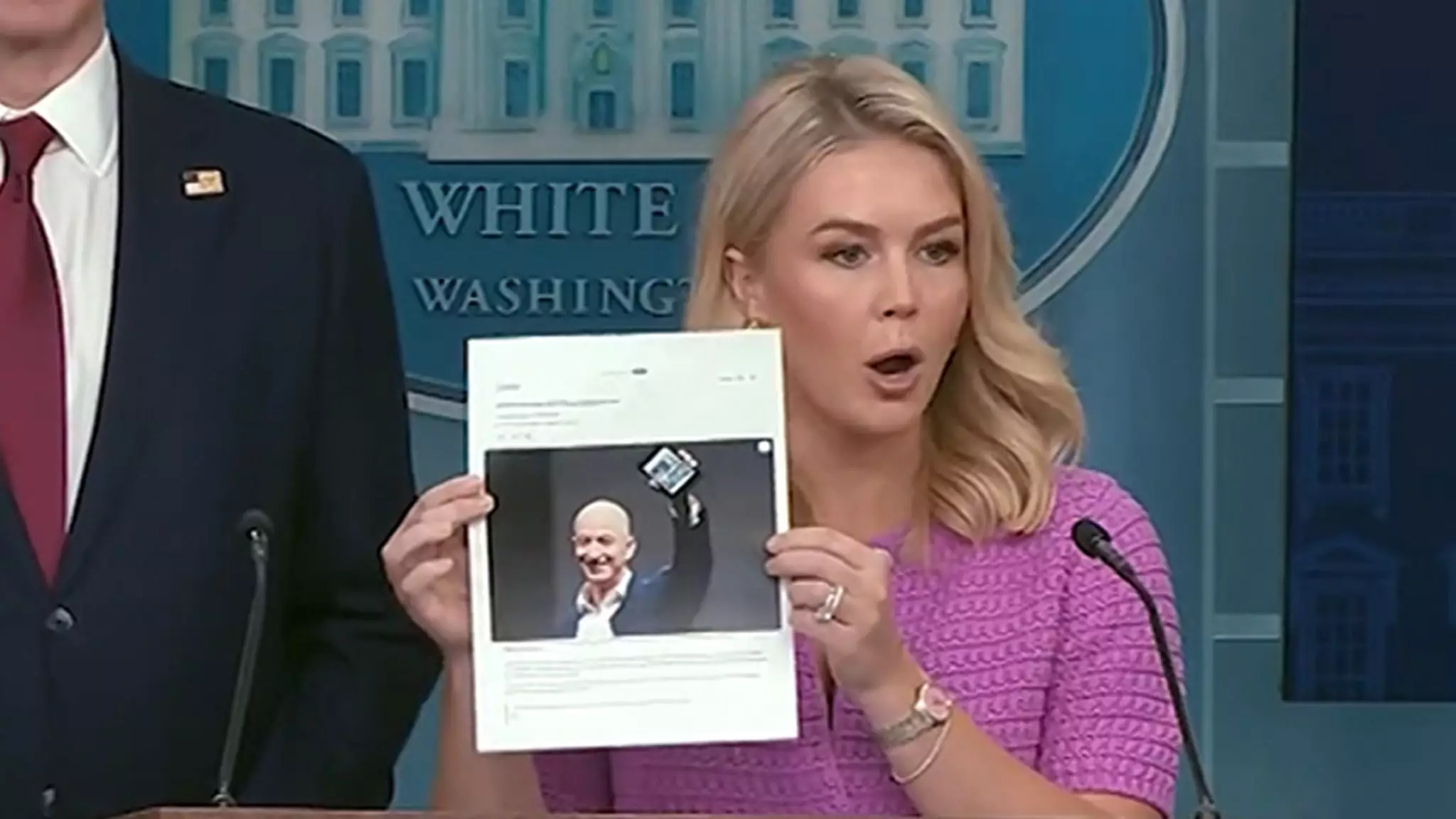In an era where technology and politics are inseparably intertwined, the recent developments surrounding Amazon’s proposed feature have highlighted the complex relationship between corporate America and political governance. The feature under scrutiny aims to transparently showcase how much consumers are paying as a direct result of tariffs imposed during the Trump administration. White House Press Secretary Karoline Leavitt’s vehement reaction to this proposal paints a vivid picture of the charged atmosphere currently enveloping corporate decision-making. Leavitt’s categorization of Amazon’s initiative as a “hostile and political act” underscores the heightened sensitivity surrounding tariff discussions and their implications for both businesses and consumers alike.
Transparency: A Double-Edged Sword
The notion of financial transparency is, in theory, a commendable pursuit. Customers armed with knowledge about how tariffs inflate prices can make informed choices about their spending. However, this transparency walks a fine line between informing consumers and weaponizing information against political figures. By highlighting the impact of Trump-era tariffs on consumer prices, Amazon could inadvertently fuel political divides. This raises an essential question: Is the e-commerce giant genuinely aiming to empower consumers with information, or is it leveraging its platform to navigate the turbulent waters of political discourse?
Moreover, Leavitt’s questions regarding Amazon’s silence on inflation during President Biden’s tenure show a keen awareness of how financial policies can be portrayed to extol or condemn a sitting administration. The lack of transparency concerning inflation—an equally pressing issue—could be perceived as selective engagement in political dialogue. This not only casts a shadow over the authenticity of Amazon’s intentions but also suggests a tactical play in the wider game of public perception.
The Role of Corporate Responsibility
It’s essential to scrutinize the responsibilities held by colossal corporations like Amazon in today’s political landscape. As entities wielding considerable influence over public opinion and consumer behavior, their choices can have far-reaching ramifications. Leavitt’s reference to Amazon’s past partnerships with Chinese state-controlled entities was not merely a throwaway comment; it points to the complexities of globalization where corporations operate across ideological and geographical divides. If Amazon seeks to take a stand on transparency today, what other ethical commitments should it examine in the light of its vast global footprint?
Furthermore, the press conference remarks by Treasury Secretary Scott Bessent about the potential job losses for China due to tariffs only add more context to the stakes involved. These claims illustrate that while the U.S. government seeks to portray tariffs as a strategic maneuver to bolster domestic jobs, the ripple effects of such policies can trigger unintended consequences on a global scale. Thus, any corporate move—be it Amazon’s new feature or the government’s stance on tariffs—demands rigorous assessment.
An Evolving Landscape of Accountability
The back-and-forth between Amazon and the Trump administration is a vivid demonstration of how corporations navigate turbid waters characterized by political bias, consumer rights, and ethical implications. As companies strive for accountability in their operations, they must also remain vigilant about how their decisions are perceived and the motivations underlying those decisions. It’s vital for corporations to prioritize authenticity over mere transactional relationships with consumers. In doing so, they can enhance their credibility while genuinely contributing to public discourse and fostering a more informed consumer base.
Amazon’s journey is emblematic of the ongoing tug-of-war between corporate ambitions and political realities. The future trajectory of such features will inevitably shape not just Amazon’s relationship with consumers but also its role in the ever-evolving interplay of business and governance.

